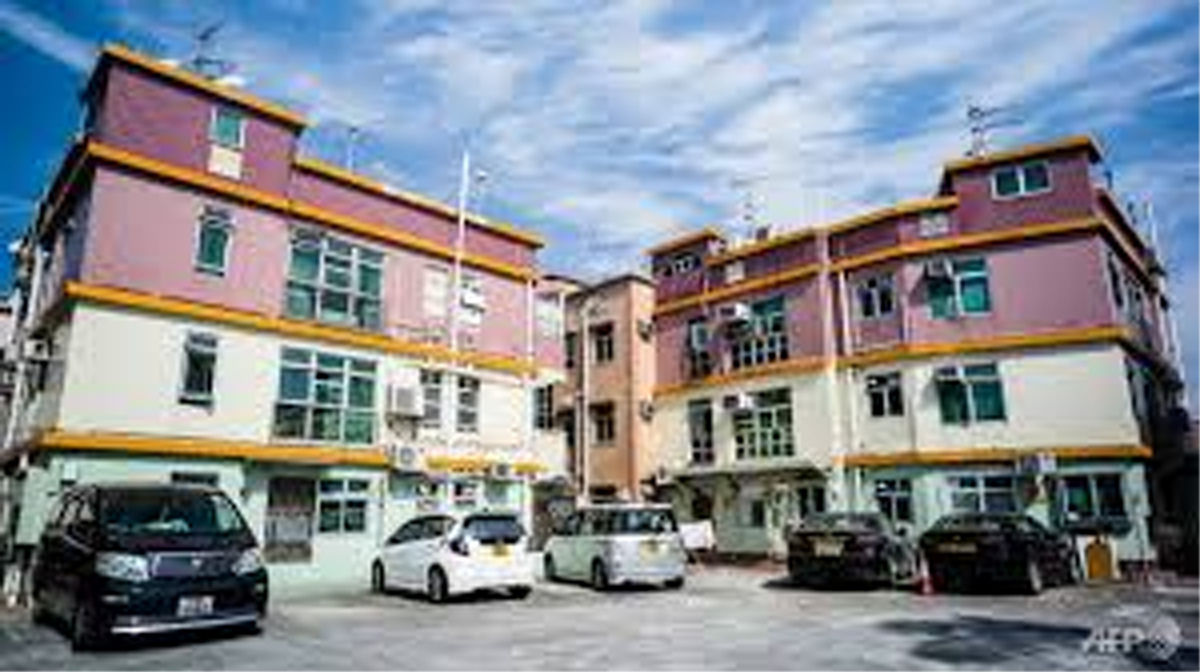HONG KONG, Feb 17: Sitting in the spacious courtyard of an 18th-century ancestral hall belonging to his clan, William Liu defiantly rejects a lucrative birthright that his special status as one of Hong Kong’s male indigenous villagers affords him.
Liu hails from the rural northern part of Hong Kong known as the “New Territories” which were leased by Britain from China in 1898.
Under a colonial-era policy that remains in place, any male who can trace his lineage back to that period has the right to build a three-storey house on his land without paying a land fee.
In a city with the world’s least affordable property market, that exclusively male right is a major windfall.
But it is being challenged in the courts as both discriminatory to women and unfair to millions of Hong Kongers unable to get on the property ladder.
Liu is a villager who agrees with the court case against the building rights.
“It’s an unfair policy and I will not use it,” the 22-year-old told AFP.
Liu, a democracy activist, is opposed both to the discriminatory nature of the policy and the way the city’s connected housing developers have still been able to use it to build properties.
“The small house policy has turned into something that is just being abused by a small handful of people working with developers to make money,” he explained.
Liber Research Community, a local land concern group, estimates that at least one out of four indigenous houses in the New Territories have been built illegally, with commercial developers making secret deals with villagers to use their land rights.
Authorities largely turn a blind eye to the practice.
The so-called “ding rights” — named after the Cantonese word for male offspring — were enacted in 1972 by the British as an interim measure to improve living standards for farmers. It continued after the 1997 handover to China.
With the crammed city facing an acute housing shortage, the New Territories’ vast land banks are being eyed for their development potential and calls are mounting for the government to overhaul the policy.
But ding rights have been vociferously defended by the powerful Heung Yee Kuk, an advisory body that has dominated rural affairs for decades and delivers reliably pro-Beijing votes in the complex system that elects Hong Kong’s leader.
In a bid to alleviate its acute housing shortage, Hong Kong’s government has proposed spending some $63 billion on building artificial islands that could accommodate a new city around a fifth the size of Manhattan.
The proposal has sparked protests over both the enormous cost and the potential environmental damage.
Chan Kim-ching, the founder of the Liber research group, said the government should overhaul how land is allocated in the New Territories and make it more accessible to everyone.
“That could improve the environment, cancel out some of the unequal situation and solve our housing demand at the same time,” he said.
A government spokesperson and Heung Yee Kuk chair Kenneth Lau both declined to comment on the policy, citing the ongoing legal challenge.
Indigenous villagers, who along with ding rights also enjoy other special benefits including some exclusive burial rights, are often seen as an unfairly privileged group.
But they argue the policy does not mean they are guaranteed a house immediately, even if they own their land.
Indigenous local Selena Yung says she experienced discrimination as a woman in the villages, but she supports the house policy, noting it benefited her two sons — whose applications were approved after waiting for more than a decade.
She told AFP: “It’s already so hard for them to have their applications approved, never mind girls. They should solve this problem first.” Stanley Ho, an indigenous activist who grew up in a tiny village of just a few dozen people located deep in a country park, watched as fields around his village were replaced by houses, and as decades-old trees were cut down to make way for illegal roads in recent years to facilitate construction.
He called on the government to work with the Heung Yee Kuk, environmental groups and rural representatives to decide on a way to end the “unfair policy” while still improving the living environment for villagers.
“Our generation has to speak out, and we have to control our own space,” he said, adding: “If we don’t manage it then the developers will take over.” (AGENCIES)
&&&


